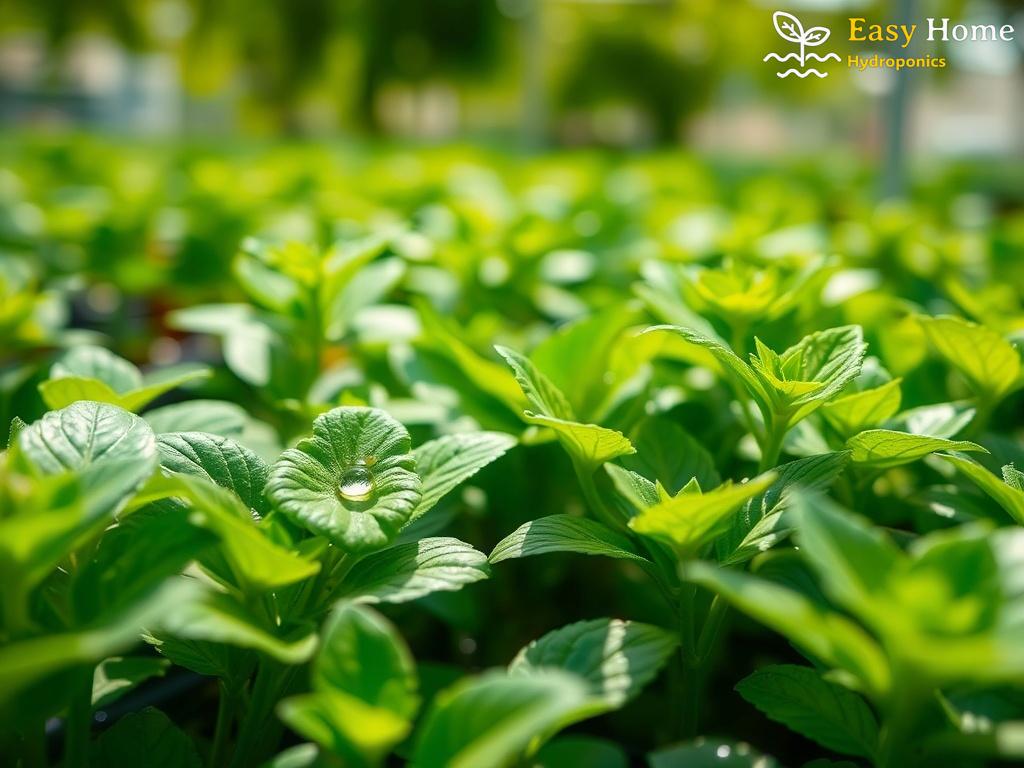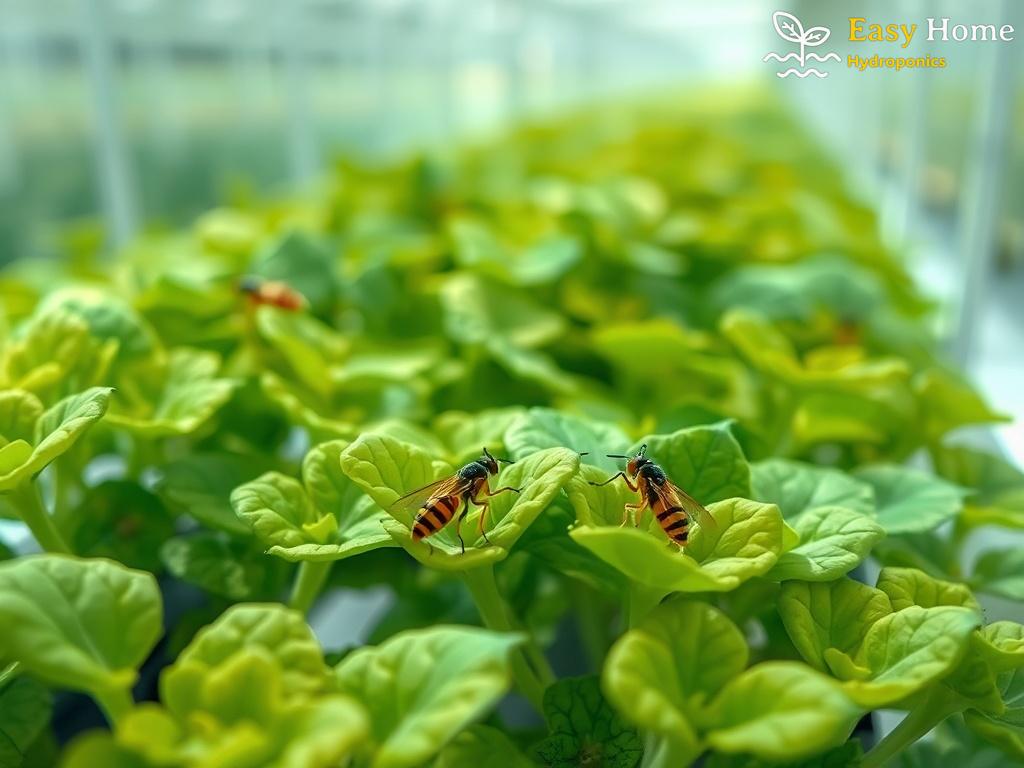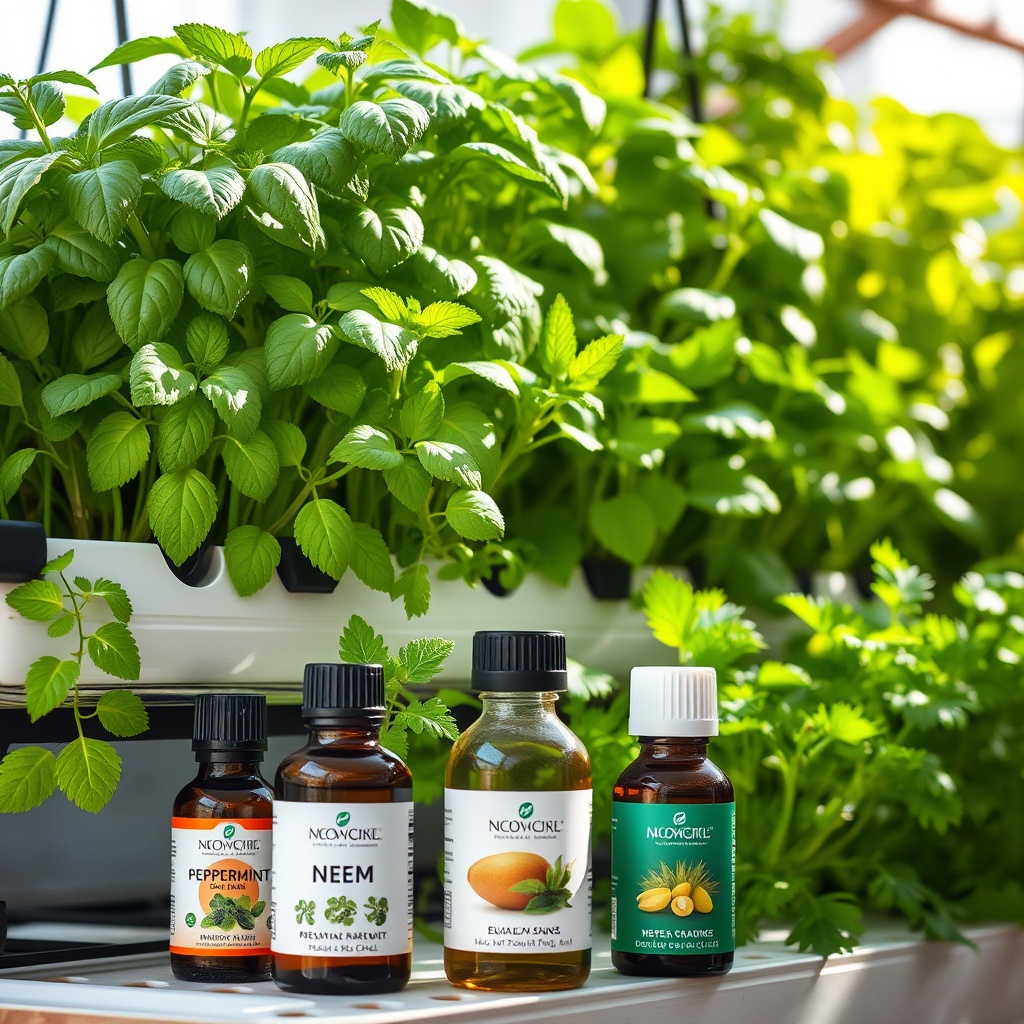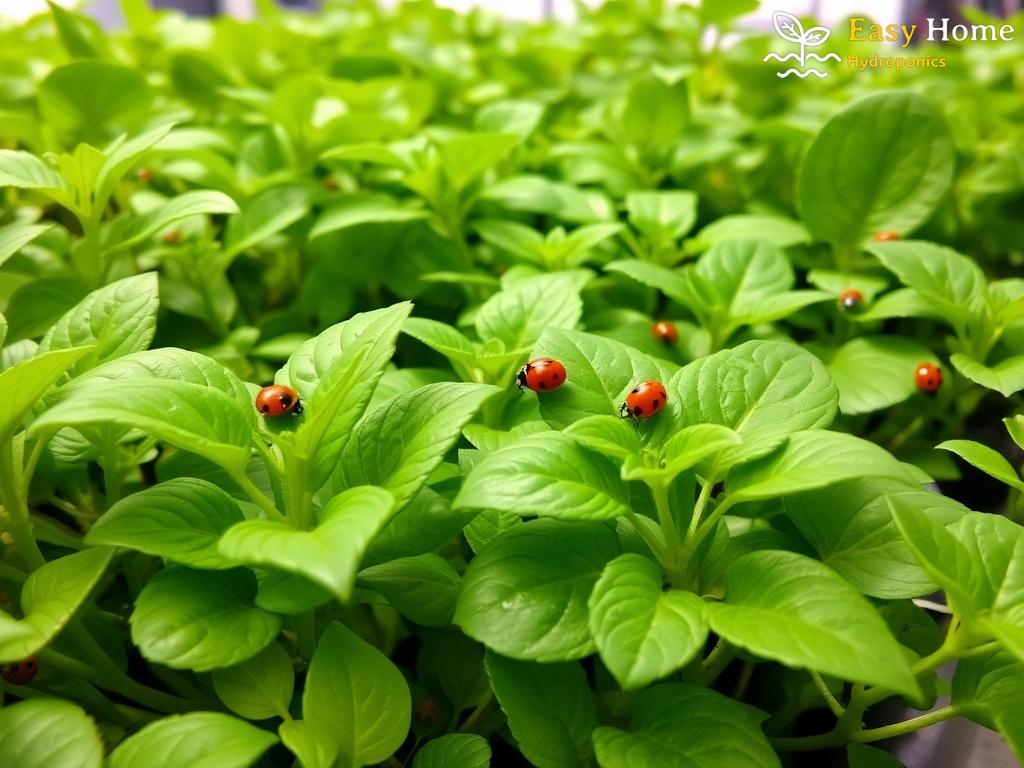Eucalyptus Oil: Nature’s Insect Repellent
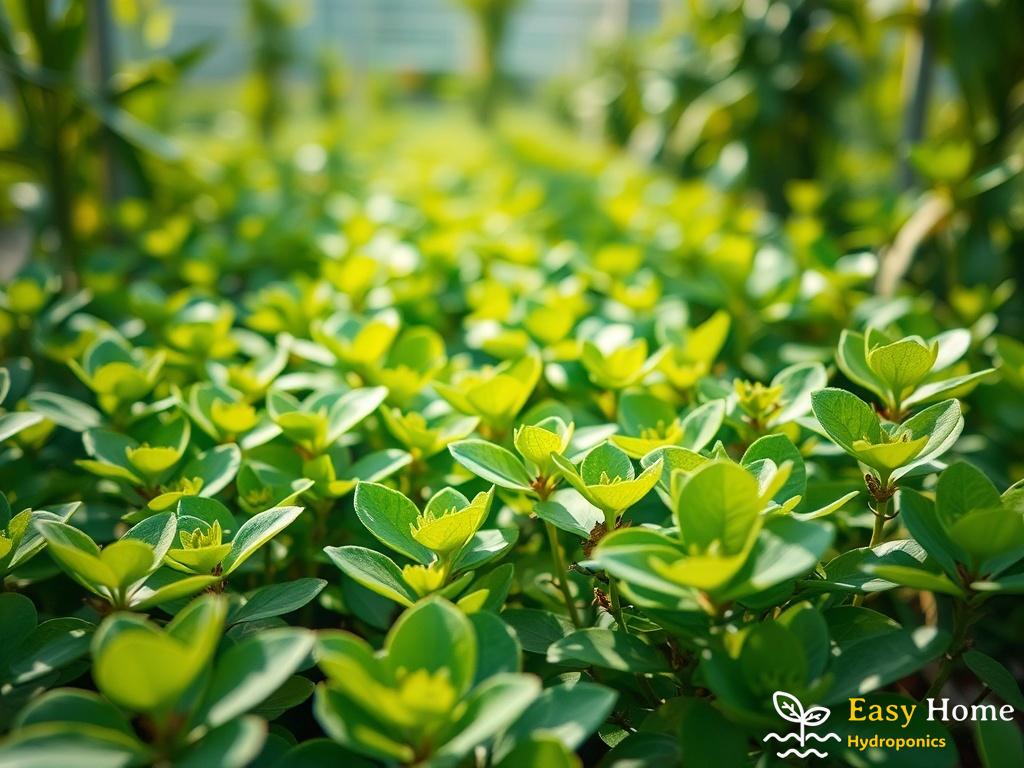
Eucalyptus oil has long been celebrated for its refreshing aroma and therapeutic properties. However, its potential as a natural insect repellent is gaining traction, especially among hydroponic gardeners looking for environmentally friendly pest control methods. This article explores the myriad ways eucalyptus oil can effectively combat insect infestations in hydroponic systems.
Derived from the leaves of eucalyptus trees, this essential oil contains compounds like eucalyptol and citronellal, which are known for their insect-repelling properties. Research has shown that these natural compounds can disrupt the sensory receptors in various pests, making eucalyptus oil a formidable opponent in the battle against insects.
Using eucalyptus oil in hydroponic gardening not only helps in controlling insect populations but also promotes a healthier growing environment. Here are some compelling benefits:
- Non-Toxic: Unlike chemical pesticides, eucalyptus oil is safe for plants, humans, and pets.
- Multi-Purpose: It repels a wide range of insects, including aphids, spider mites, and whiteflies.
- Promotes Plant Health: The oil has antifungal properties that can protect plants from disease.
To harness the full potential of eucalyptus oil in your hydroponic system, consider the following application methods:
- Foliar Spray: Mix eucalyptus oil with water and a mild soap, then spray directly on affected plants. This method ensures the oil coats the foliage, providing immediate protection.
- Soil Drench: Dilute eucalyptus oil in water and apply it to the growing medium. This not only repels insects but also enhances the overall soil health.
- Essential Oil Diffuser: Using a diffuser in your gardening area can help maintain a pest-free environment without directly applying the oil to plants.
In conclusion, eucalyptus oil stands out as an effective, natural insect repellent that offers multiple benefits for hydroponic gardeners. By integrating this essential oil into your pest management strategy, you can ensure a thriving, healthy ecosystem for your plants.
Harnessing Eucalyptus Oil: A Hydroponic Game Changer
In the evolving world of hydroponic gardening, the quest for sustainable pest control methods has never been more critical. As gardeners seek alternatives to synthetic pesticides, eucalyptus oil emerges as a powerful ally. Its unique properties not only repel unwanted insects but also contribute to a healthier growing environment. Discover how eucalyptus oil can transform your hydroponic gardening practices.
The versatility of eucalyptus oil extends beyond mere insect repellent; it plays a pivotal role in enhancing plant vitality. By using this essential oil, hydroponic gardeners can create a thriving ecosystem where plants flourish without the threat of harmful pests. The active compounds in eucalyptus oil work synergistically, offering a robust defense mechanism against a variety of insects.
Research indicates that eucalyptus oil not only repels but can also deter the feeding behavior of pests. This dual action is essential in maintaining plant health and reducing the overall stress on your hydroponic systems. By incorporating eucalyptus oil into your pest management strategies, you are not just fighting off insects; you are fostering a more resilient growing environment.
To fully leverage the benefits of eucalyptus oil, it’s crucial to apply it correctly. The effectiveness of this essential oil can be maximized through several innovative methods. One popular approach is the creation of a targeted foliar spray. By mixing eucalyptus oil with water and a natural soap, gardeners can create an effective spray that coats leaves, providing immediate protection against insect invasions.
Another technique involves using eucalyptus oil in the nutrient solution. This method not only repels pests but also enhances the nutrient profile of the water, promoting healthier root systems. Experimentation is key; gardeners should monitor their plants’ responses and adjust concentrations accordingly. This adaptability is what makes eucalyptus oil a game changer in hydroponic insect control.
| Application Method | Benefits | Considerations |
|---|---|---|
| Foliar Spray | Immediate insect deterrent | Reapply after rain or heavy watering |
| Nutrient Solution | Enhances root health | Monitor for any adverse reactions |
As we explore the myriad possibilities that eucalyptus oil offers, it becomes apparent that this natural solution is not just an alternative; it is a revolutionary approach to hydroponic gardening. By embracing eucalyptus oil, gardeners can ensure a vibrant, pest-free environment that nurtures plant growth and promotes ecological harmony.
The Science Behind Eucalyptus Oil and Pest Control
The relationship between eucalyptus oil and pest control is a fascinating intersection of nature and science. As hydroponic gardeners increasingly turn to eco-friendly solutions, understanding the underlying science of eucalyptus oil’s effectiveness becomes crucial. This potent essential oil, derived from eucalyptus leaves, boasts a unique composition that makes it an invaluable ally in the battle against pests.
At the heart of eucalyptus oil’s pest-repelling properties lies its complex molecular structure. Key components, such as eucalyptol and citronellal, are known for their ability to disrupt the normal sensory functions of insects. When these compounds come into contact with pests, they interfere with their olfactory receptors, effectively masking the scents that attract them. This disruption not only repels insects but can also lead to a decrease in their feeding activity, allowing plants to thrive.
Numerous studies have supported the efficacy of eucalyptus oil in managing pest populations within hydroponic systems. Research has shown that when applied in appropriate concentrations, eucalyptus oil can significantly reduce the presence of common pests such as aphids and spider mites. Furthermore, its antifungal properties enhance plant resilience, creating a dual-action approach that promotes overall health. Gardeners have reported success by incorporating eucalyptus oil into various application methods, such as foliar sprays or nutrient solutions, maximizing its benefits while minimizing the risks associated with synthetic chemicals.
Importantly, eucalyptus oil not only acts as a deterrent but also contributes to a balanced ecosystem. By using this natural solution, hydroponic gardeners engage in a sustainable practice that respects the environment, ensuring that beneficial insects remain unharmed while repelling harmful pests. This holistic approach is what sets eucalyptus oil apart as a remarkable tool in modern gardening.
Application Techniques: Using Eucalyptus Oil in Hydroponics
The application of eucalyptus oil in hydroponic gardening is not merely about repelling insects; it’s about crafting a comprehensive strategy for plant health and pest management. As gardeners strive for a harmonious balance in their ecosystems, understanding the best techniques for utilizing this essential oil becomes paramount. Whether you are a novice or an experienced hydroponic enthusiast, adopting effective application methods can significantly enhance your gardening experience and boost plant vitality.
One of the most effective techniques for utilizing eucalyptus oil in hydroponic systems is through foliar sprays. This method involves diluting eucalyptus oil with water and a natural soap, which allows the solution to adhere to the leaves, creating an immediate protective barrier against pests. When applied correctly, this spray not only deters intruders but also promotes the overall health of the foliage. It’s essential to cover both the upper and lower surfaces of the leaves to maximize effectiveness. Additionally, reapplication may be necessary after heavy watering or rain to maintain the protective layer.
Another fascinating approach is incorporating eucalyptus oil directly into the nutrient solution. By adding a carefully measured amount of this oil to your hydroponic nutrient mix, you create a dual-action solution that nourishes the plants while simultaneously repelling unwanted insects. This method not only enhances the nutrient uptake but also fortifies the root systems, making them more resilient against pests. However, it’s crucial to monitor the plants closely for any signs of adverse reactions, adjusting the concentration as needed to ensure their well-being.
For those seeking a more ambient approach, employing an essential oil diffuser in the growing area can be a game-changer. By dispersing eucalyptus oil into the air, you establish an aromatic shield that discourages various insects from entering the space. This method is particularly useful in large hydroponic setups, where direct application to every plant may be impractical. The gentle, continuous release of eucalyptus oil creates an environment that is not only pleasant for gardeners but also inhospitable to pests.
Ultimately, the success of these application methods hinges on consistency and observation. Regularly evaluating the health of your plants and the effectiveness of your chosen technique allows for fine-tuning your approach. As you experiment with these innovative techniques, remember that eucalyptus oil is more than just a repellent; it is a holistic ally in nurturing a flourishing hydroponic ecosystem.
Benefits of Eucalyptus Oil: Beyond Insect Control
In the realm of hydroponic gardening, the quest for sustainable methods goes beyond mere pest control. Eucalyptus oil offers a multitude of benefits that enrich plant health and enhance the overall ecosystem. While it is renowned for its effectiveness against insects, its contribution to plant vitality is equally noteworthy. The unique properties of eucalyptus oil not only repel pests but also promote a thriving environment for growth.
One of the most significant advantages of eucalyptus oil is its antifungal characteristics. This essential oil is a natural defender against various fungal infections that can plague hydroponic systems. By incorporating eucalyptus oil into your gardening routine, you’re not just warding off unwelcome visitors; you’re creating a protective barrier that helps to keep your plants healthy and robust. This dual action of repelling pests while preventing disease is what sets eucalyptus oil apart as a holistic solution.
The benefits of eucalyptus oil extend into the nutritional realm as well. When used in nutrient solutions, this oil can assist in maximizing nutrient absorption by the plants. Eucalyptus oil contains compounds that enhance the bioavailability of essential nutrients, ensuring that your plants receive the nourishment they need to thrive. This is particularly crucial in hydroponic systems where nutrient balance is vital for growth.
Moreover, eucalyptus oil contributes to the strengthening of root systems. A healthy root structure is the foundation of any successful hydroponic garden, and by incorporating eucalyptus oil, gardeners can foster resilience in their plants. This resilience is essential not only for withstanding pest attacks but also for adapting to environmental stressors. As roots grow stronger, plants are better equipped to absorb water and nutrients, leading to overall enhanced growth.
Utilizing eucalyptus oil goes beyond the individual benefits; it plays a critical role in cultivating a balanced ecosystem within your hydroponic system. The aroma of eucalyptus oil acts as a natural deterrent to pests, allowing beneficial insects to thrive without interference. By using this essential oil, gardeners promote biodiversity, paving the way for a healthier and more dynamic growing environment.
Furthermore, eucalyptus oil’s properties significantly contribute to air purification. When diffused into the air, this oil can help eliminate airborne pathogens, creating a cleaner atmosphere for both plants and gardeners. This not only aids in plant health but also fosters a more pleasant gardening experience, making it a delightful addition to any hydroponic setup.

